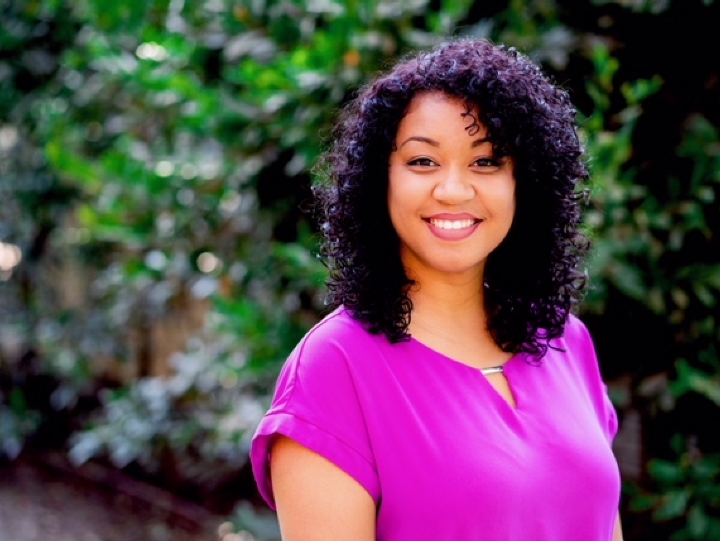
Black Foster Youth Lives Matter
Student Success Equity, Inclusion and Social Justice Socioeconomic and Class Issues in Higher Education
It's Black History Month.
I want to state clearly -- Black Foster Youth Lives Matter!
It’s important to acknowledge that there are multiple groups in foster care who are marginalized (i.e. – Native Americans, Latinos, LGBT, and those with disabilities). These groups also deserve our attention and advocacy. However, in this piece, I am centering the lives of Black foster youth.
Black foster youth are some of the most disenfranchised and vulnerable populations. Often, their stories are swallowed up by a monolithic narration of a foster youth experience. I admit, I do this sometimes too when educating people about the plight of foster youth when audiences are unfamiliar with the population and need a starting point. People are not always ready to hear the reality of both the trauma and racism Black foster youth suffer.
But not sharing the nuanced experiences of Black foster youth negates the layered complexities that shape their lives. Black foster youth not only deal with personal trauma but must also deal with the psychological trauma of systematic racism.
Black children are disproportionately overrepresented in child welfare and are 2.5 times more likely to be placed in foster care. Once in foster care, Black foster youth stay longer and are far less likely to be adopted.
In general, foster youth have lower educational outcomes compared to their non-foster youth peers. Foster youth were up to 50% less likely to meet proficiency standards on math and English standardized tests when compared to similar at-risk student groups. Youth from foster care are less likely to graduate from high school or enroll in post-secondary education. Only 3% of foster youth earn a college degree.
When the educational outcomes of foster youth are compared by race, Black and White foster youth have similar educational attainment. However, when foster youth earn a college degree – significant racial disparities persist with employment. In general, Blacks with a college degree are twice as less likely to be employed and experience wage gaps compared to Whites with a college degree.
A study by Murray (2013) examined the experiences of African American males from foster care and their college experiences. Participants shared their challenges of trying to navigate child welfare, higher education, and systems of racism. All of the young men discussed their understanding of their social status in society as Black foster youth as being the “bottom of the bottom.” One participant stated:
“I knew all the stigma and all the statistics that comes along with it, like most people that’s in foster care, especially African American males, and African American people in general, they don’t go to college, better yet they don’t…they’re struggling, they’re financially struggling and surviving, just basic things such as living, housing, eating, jobless, it’s like the bottom of the bottom. It’s already you know… bottom being African American and being an African American foster youth, it’s like your just at the bottom of the chain.”
For anyone to believe that they are the “bottom of the bottom” is a difficult thing to cope with. Hardy (2013) identifies this condition as internalized devaluation. This happens to youth of color which are the effects of the hidden wounds of racial trauma.
Foster youth can hide their foster care status, but Black foster youth cannot hide their skin. Our Black foster youth exist in systems that are embedded with racism. Think about this -- the first system in the United States strategically designed for Blacks was -- slavery. A quote by WEB DuBois summarizes the goal of the American system, “A system cannot fail those it was never designed to protect.”
We must DEMAND better for our Black youth, particularly those Black foster youth who are extremely vulnerable to multiple types of trauma.
Call to Action:
Many movements today are intersectional like the Women's Movement and Black Lives Matter. Our work, our advocacy, our foster youth movement -- must also be intersectional. Advocating for foster youth must intentionally include the intersection of race. We must center the needs of Black foster youth by actively being part of dismantling racism.
References
Frerer, K., Sonecko, L. S., Pellegrin, N., Zakharenkov, A., Horowitz, J., & Patton, M. K. (2011, November). First look: Foster youth education outcomes in four California counties. Retrieved from http://www.cacollegepathways.org
Hardy, K. V. (2013). Healing the hidden wounds of racial trauma. Reclaiming Children and Youth, 22(1), 24-28.
Harris, M. S., Jackson, L. J., O'Brien, K., & Pecora, P. J. (2009). Disproportionality in education and employment outcomes of adult foster care alumni. Children and Youth Services Review, 31(11), 1150-1159. https://doi.org/10.1016/j.childyouth.2009.08.002
Murray, D. (2013). Resilient African American male college students: A qualitative study of supports and challenges for those from foster care. California State University, Fresno.
Pecora, P. J., Kessler, R. C., O'Brien, K., White, C. R., Williams, J., Hiripi, E., ... & Herrick, M. A. (2006). Educational and employment outcomes of adults formerly placed in foster care: Results from the Northwest Foster Care Alumni Study. Children and Youth Services Review, 28(12), 1459-1481. doi:10.1016/j.childyouth.2006.04.003
Ross, J. (2014, May 27). African-Americans with college degrees are twice as likely to be unemployed as other graduates. The Atlantic. Retrieved from https://www.theatlantic.com/politics
Dr. Kizzy Lopez (@DrKizzyLopez) is an Assistant Professor in Social Work at Fresno Pacific University, a former foster youth, and TEDx Speaker on The Trauma of Being Black in Foster Care. She has over 13 years of experience in higher education as a leader and advocate for foster and homeless youth. In 2008, she founded the Renaissance Scholars, a campus-based program to help foster youth attending a four-year university and served as the coordinator for 10 years. Her research interests include educational equity, the experiences of college-going foster youth, and students of color.